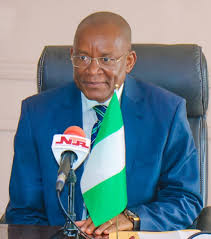Business
Minister Inspects Nigeria/Benin Republic-owned Sugar Firm … Decries Decrepit Condition

Business
Agency Gives Insight Into Its Inspection, Monitoring Operations

Business
BVN Enrolments Rise 6% To 67.8m In 2025 — NIBSS

The Nigeria Inter-Bank Settlement System (NIBSS) has said that Bank Verification Number (BVN) enrolments rose by 6.8 per cent year-on-year to 67.8 million as at December 2025, up from 63.5 million recorded in the corresponding period of 2024.
In a statement published on its website, NIBSS attributed the growth to stronger policy enforcement by the Central Bank of Nigeria (CBN) and the expansion of diaspora enrolment initiatives.
NIBSS noted that the expansion reinforces the BVN system’s central role in Nigeria’s financial inclusion drive and digital identity framework.
Another major driver, the statement said, was the rollout of the Non-Resident Bank Verification Number (NRBVN) initiative, which allows Nigerians in the diaspora to obtain a BVN remotely without physical presence in the country.
A five-year analysis by NIBSS showed consistent growth in BVN enrolments, rising from 51.9 million in 2021 to 56.0 million in 2022, 60.1 million in 2023, 63.5 million in 2024 and 67.8 million by December 2025. The steady increase reflects stronger compliance with biometric identity requirements and improved coverage of the national banking identity system.
However, NIBSS noted that BVN enrolments still lag the total number of active bank accounts, which exceeded 320 million as of March 2025.
The gap, it explained, is largely due to multiple bank accounts linked to single BVNs, as well as customers yet to complete enrolment, despite the progress recorded.
Business
AFAN Unveils Plans To Boost Food Production In 2026
-

 Sports4 days ago
Sports4 days agoTinubu Lauds Super Eagles’ after AFCON bronze triumph
-

 Sports4 days ago
Sports4 days agoAFCON: Lookman gives Nigeria third place
-

 Sports4 days ago
Sports4 days agoFulham Manager Eager To Receive Iwobi, Others
-

 Sports4 days ago
Sports4 days ago“Mikel’s Influence Prevent Some Players Invitation To S’Eagles Camp”
-

 Sports4 days ago
Sports4 days agoMan of The Match award Excites Nwabali
-

 Sports4 days ago
Sports4 days agoRemo, Ikorodu set for NPFL hearing, Today
-

 Sports4 days ago
Sports4 days agoPolice Games: LOC inspects facilities in Asaba
-

 Niger Delta4 days ago
Niger Delta4 days agoINC Polls: Ogoriba Pledges To Continuously Stand For N’Delta Rights … Picks Presidential Form

